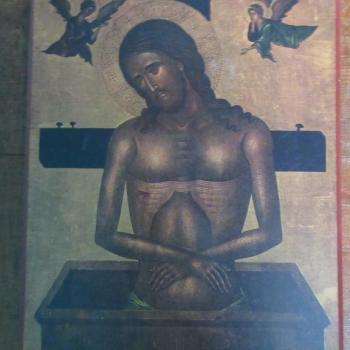Due to recent events in Nebraska, Most. Revs. Elden F. Curtiss, Fabian W. Bruskewitz, and William J. Dendinger have entered into the immigration debate, pointing out the need for the United States to reform its polices in their statement, Immigration: A Call to Be Patient, Hospitable and Active for Reform.
In it, they outline five basic principles which the Church uses to examine the issue of migration.
- All people have the right to live in a stable homeland, with sufficient political, economic and social opportunities available to all, so that all could achieve a fulfilling life for oneself and one’s family where they live.
- When the first is not possible, a person has a right to move elsewhere, to look for a better life. They don’t have an absolute right to go where they want and how they want, but rather, they must have a proper reason to justify where and how they move (migrating because of “economic necessity” is a just cause).
- Sovereign nations have a relative right to regulate their borders for the protection and welfare of their people. The rules they use must be just, and must include a proper understanding of the relationship between nations. “Nations also have an obligation to the universal common good, which extends beyond individual borders. The more powerful economic nations, such as the United States, have a greater level of this obligation, as they manage substantial resources for human needs and strive for greater accommodation of migration flows.”
- Refugees fleeing wars and other forms of unjust persecution should be given sanctuary.
- A migrant, whether or not legal, whether or not their status is document, has rights due to the dignity of the human person, and must be treated accordingly.
The bishops state that the rule of law and its proper enforcement should be a part of the debate, and abuses in the enforcement process should not be used to reject the need for such enforcement itself (but, obviously, explains where reform is needed):
The laws governing immigration, despite deficiencies and questionable enforcement, are directed toward necessary purposes of national security and orderly control of migration. Border integrity is vital to our nation. Moreover, while immigration is predominantly a civil-law jurisdiction, it is a social and legal reality that illegal immigration is often connected to criminal activity, including identity theft and other forms of false representation, trafficking in drugs and human servitude and intentional violations of other laws and ordinances governing rights and privileges.
The bishops think any reform must overcome the either/or perspective which pits those favorable to migrant rights to those of the state. Rather, they think the way forward can only come when they are seen as complementary truths which must be united together, instead of rival truths in a zero-sum game:
The two obligations set forth in the Catechism, when viewed from the perspective of the current national, state and local debates, in which the economic desperation of immigrants is too often pitted against respect for the rule of law, may appear contradictory. We propose they are complementary. Receiving migrants and honoring laws can be a “both/and” rather than an “either/or” policy. This then is the foundation for our vision of the future.
While true, I would like to see more explanation from the bishops as to how they would work the two principles together — what is it, exactly, do they think can be done in reform?











